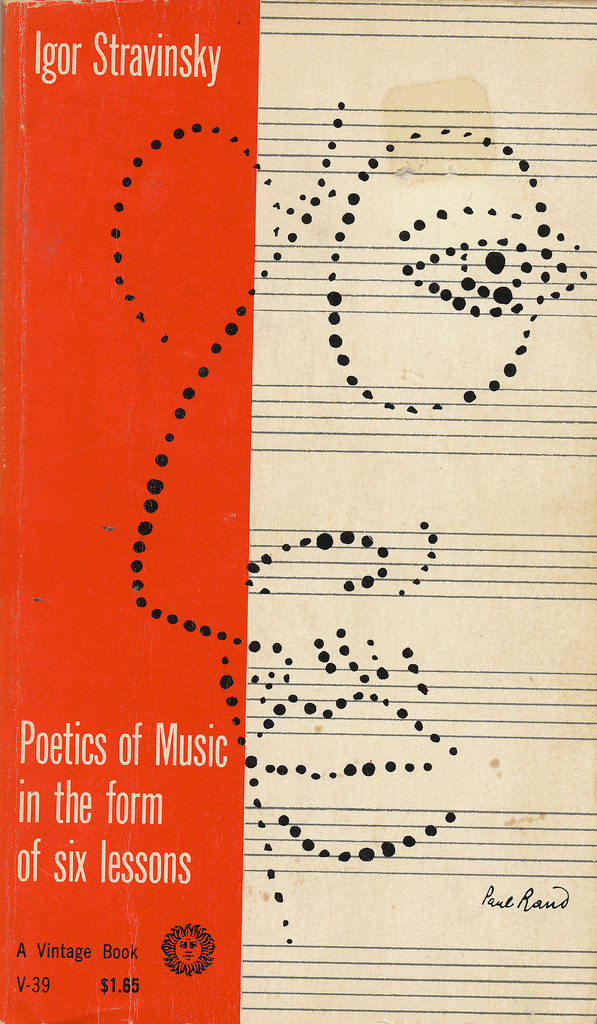Kyle Gann: Robert Ashley (2012)
Filed under book | Tags: · avant-garde, biography, composition, music, opera, performance, theatre, video

“This book explores the life and works of Robert Ashley, one of the leading American composers of the post-Cage generation. Ashley’s innovations began in the 1960s when he, along with Alvin Lucier, Gordon Mumma, and David Behrman, formed the Sonic Arts Union, a group that turned conceptualism toward electronics. He was also instrumental in the influential ONCE Group, a theatrical ensemble that toured extensively in the 1960s. During his tenure as its director, the ONCE Festival in Ann Arbor presented most of the decade’s pioneers of the performing arts. Particularly known for his development of television operas beginning with Perfect Lives, Ashley spun a long series of similar text/music works, sometimes termed “performance novels.” These massive pieces have been compared with Wagner’s Ring Cycle for the vastness of their vision, though the materials are completely different, often incorporating noise backgrounds, vernacular music, and highly structured, even serialized, musical configurations.
Drawing on extensive research into Ashley’s early years in Ann Arbor and interviews with Ashley and his collaborators, Kyle Gann chronicles the life and work of this musical innovator and provides an overview of the avant-garde milieu of the 1960s and 1970s to which he was so central. Gann examines all nine of Ashley’s major operas to date in detail, along with many minor works, revealing the fanatical structures that underlie Ashley’s music as well as private references hidden in his opera librettos.”
Publisher University of Illinois Press, 2012
American Composers series
ISBN 025207887X, 9780252078873
184 pages
Reviews: Devin King (Make, 2013), New Music Buff (2013).
PDF (updated on 2021-7-6)
Accompanying website
See also Perfect Lives and other works of Ashley on UbuWeb.
Comments (2)Charles W. Turner: Xenakis in America (2014)
Filed under book | Tags: · biography, composition, computer music, electroacoustic music, electronic music, mathematics, music, sound synthesis

Iannis Xenakis had a long-standing interest in the U.S., but given the five years he spent there, little has been written about his experiences. This study attempts, through archival research and interviews, to document Xenakis’ time in the United States. Its subject is his relationship to American cultural institutions, and the attraction of America for his musical composition and research.
Xenakis in America treats the period from Copland’s invitation to Tanglewood in 1963, through Xenakis’ 1972 investment by France as a state-supported artist. While he visited the U.S. many times thereafter, he no longer sought long-term engagement with U.S. institutions, but presented work completed elsewhere. After his summer at Tanglewood, performances of Xenakis compositions by Schuller, Foss and Bernstein (among others) are tracked throughout the 1960s and 1970s. Xenakis’ association with George Balanchine is examined, along with the reception of Xenakis’ theoretical writings, culminating in the publication of Formalized Music. in 1971. Xenakis’ collaboration with Alexis Solomos on Aeschylus’ Oresteia, produced in 1966 by the Ypsilanti Greek Theatre, is explored, as well as the founding of Xenakis’ research center CMAM at Indiana University in 1967, which he would build over the next five years.
Concerning Xenakis’ reasons for coming to America, there are two major motivations. First, there were reasons to look beyond France: its state institutions, up to the late 1960s, provided little support for avant-garde composition. Later, there were reasons to return: with the Polytope de Cluny of 1972, the Ministry of Culture signaled a policy change that favored Xenakis, and established his CeMAMu as a state-supported research center. Second, Xenakis’ opportunities in the U.S. satisfied his interest in working outside the boundaries of autonomous composition. The collaboration on the Ypsilanti Oresteia offered Xenakis involvement with both ancient and modern Greek theater, and Bloomington’s sponsorship of CMAM, which included the equipment necessary for computer synthesis of sound, gave Xenakis access to technology unavailable in France at the time.
Publisher One Block Avenue, Tappan/NY, October 2014
Open Access
ISBN 9780692267165
146 pages
The printed book is available from Lulu.com. Proceeds go to The Friends of Xenakis Association.
Comment (1)Igor Stravinsky: Poetics of Music in the Form of Six Lessons (1942–) [English, Spanish]
Filed under book | Tags: · composition, improvisation, music, music theory, opera, poetics

Cover of 1956 edition
This book collects Stravinsky’s lectures written together with Alexis Roland-Manuel and Pierre Souvtchinsky and presented at Harvard University in 1939-40. Providing a wide-ranging account of Stravinsky’s music theory it discusses such subjects as Wagnerism, the operas of Verdi, musical taste, musical snobbery, the influence of political ideas on Russian music under the Soviets, musical improvisation as opposed to musical construction, the nature of melody, and the function of the critic of music.
First published in French as Poétique musicale, 1942
English edition
Translated by Arthur Knodel and Ingolf Dahl
With a Preface by Darius Milhaud
Publisher Harvard University Press, Cambridge/MA, 1947
OCLC 155726113
142 pages
Poetics of Music (English, trans. Arthur Knodel and Ingolf Dahl, 1947, 6 MB)
Poética musical (Spanish, trans. Eduardo Grau, 1952)

